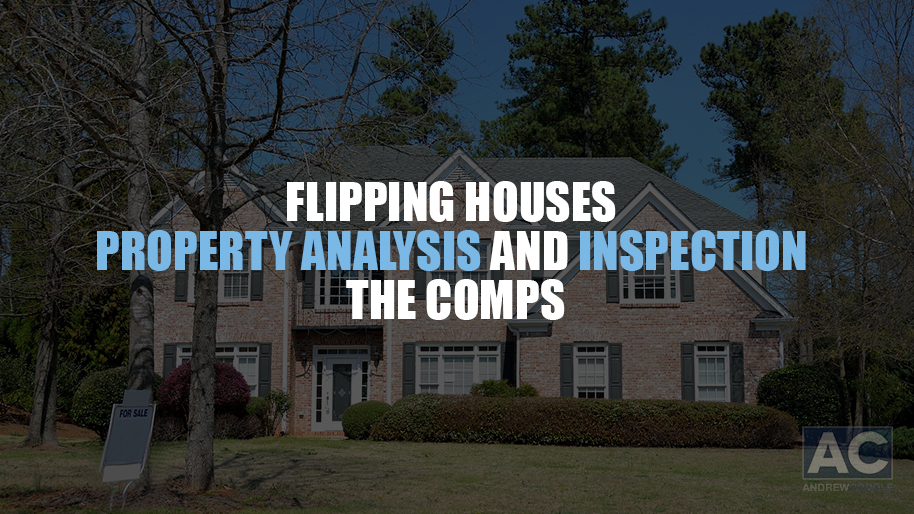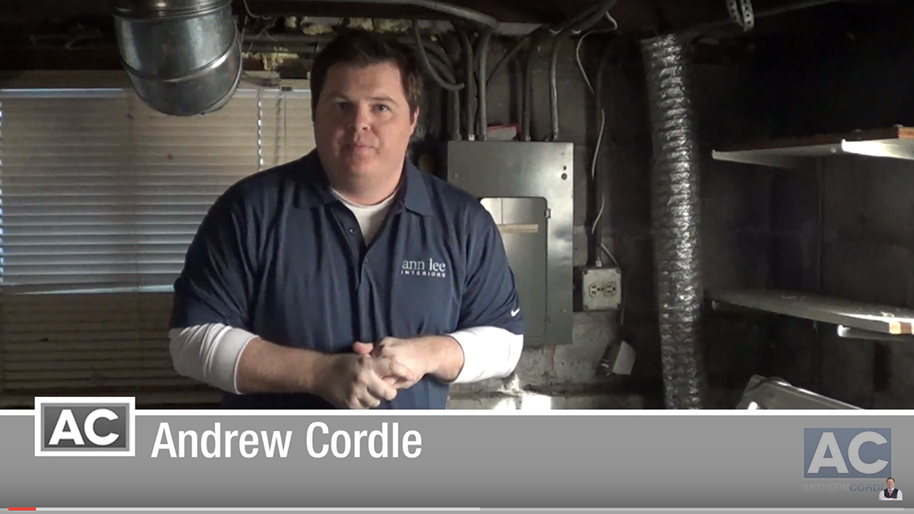Flipping Houses: Property Analysis and Inspection – The Comps
January 11, 2015

What is a comp (comparable)? To determine the value of a house, an appraiser or an agent will typically look at three comparable sales in the area, or “comps” as they are known in the industry. Agents and Appraisers have access to the Multiple Listing Service, known as the MLS, which is a database of all the properties in a given area that have been listed “for sale,” are in process of being sold (pending,) or have already been sold. Without being an agent or an appraiser, you may have a harder time accessing this information. Additionally, you can ask your agent for a list of comps – which should be easy and free for your agent to supply to you.
It’s very important to find our comps immediately or as soon as possible. When I’m looking for comps, (to use a popular metaphor) I try to get as close as possible to an “apples to apples” comparison. Rarely would one ever be lucky enough to be comparing “red apples to red apples” unless you’re buying within a condominium or homeowners association neighborhood. You’ll likely be comparing “red apples to green apples,” but it’s important that they’re both “apples.” Nothing will be identical but comparing something close to what you’re buying will get you the best numbers.
Here is a short list of seven very important comps that I include in all of my property analysis’:
1. How much have comparable properties sold for in this area within the last 6mo?
2. To expound on number one, what has sold within 1/4 mile to 1/2 mile of your house?
3. Ensure that my property is equivalent to the comp property – is it a rehab, REO, HUD, or a homeowner-occupied and then I organize them accordingly?
4. What is the square footage comparison? I’m looking for a house with comparable size/square footage.
5. How many bedrooms and how many bathroom?
6. What is the yard/lot size?
7. How big is the garage, if applicable?
So where does one go to pull comps? The easiest way to pull a comp is to be a licensed real estate agent or broker because one would obviously have unfettered access to the “Multiple Listing Service,” or the “MLS.” Fortunately for me, my wife is a licensed agent and broker. However, if you’re not licensed, I recommend either earning the license on your own or having someone close to you like a spouse, business partner, or a close family member/friend obtain theirs. It can really save you a lot of time and even some money depending on the situation.
However, it’s not always as simple as getting your license or paying for someone else close to get theirs. Before my partner earned her license, I had to use other options. I still use them whenever needed to this day. Many investors, myself included, use the following websites in order to pull their comps:
Redfin.com (they also have a great mobile app)
Realtor.com
Zillo.com
Trulia.com
In my opinion, Redfin.com and Realtor.com have the most accurate/current information to-date. Zillo.com and Trulia.com seem to have delayed information updates in my experience.
Once I’ve identified roughly twenty comparable properties, I’ll then pick the top-five that are the closest match to my property. Now remember, we’re trying to get the best “apples to apples” comparison. And as I mentioned previously, unless you’re dealing with condominiums or “cookie-cutter” HOA neighborhoods that only have 4-5 different home models, you’re not likely to have exact comparisons.
I’ve found five homes that are a close, “apples to apples” comparison. Then, I’ll choose the three houses from that list of five that are closest to mine. But we’re not done yet! You’ve got a lot of quality information at this point and unfortunately, this is where most investors cease their comp-research.
Not me! What else is happening in that 1/2 miles radius? Why are there so many rehabs in my area? If there are a high number of recent rehabs being completed and sold in the area, then its likely that the neighborhood property values are going-up. What if there are large numbers of REO’s? If there are a lot of REO’s, then that area may actually be going down in value! Pay attention to these little details because they may make or break your deal!
Also, don’t forget to pay attention to the DOM, or the “days-on-market”. If there are multiple properties listed in your area, check to see how long each of them have been on the market. This should give you a good pulse on this area of investment.
The last thing we do online is to research the local school district. There are times which a certain school district sometimes run right through your comps or on the backyard fence line. Potential buyers with children are almost always interested in the local school district. You must do your research carefully because this is another thing that can make or break your deal. One of my employees bought a home under the impression that he was in a desired school district, only to find out later after purchase that the agent wasn’t being truthful – the school district line was in is backyard on the neighbors fence. He missed the school district by 100 feet!
Do your comp-homework right and you’ll be leaps and bounds ahead of your competition!













